US military draft dodging was a felony punishable by a fine of up to $250,000 and/or five years imprisonment. Your penalty will be worse—your children will learn you were a coward.
If you read my work, you know the score. The psychopaths are no longer content with destroying our values, promoting social strife, bribing doctors to prescribe demonic drugs, or throwing open our borders to foreign predators. As I write this, their efforts to destroy our currency and economy are bearing poisonous fruit. That is not enough for them—for over two years, we have been rounded up and slaughtered using injections.
Although a substantial minority of us is still hypnotized by censorship and psychological tactics, denial is no longer possible for most. Feeding a rabid dog does not work because there are no limits for psychopaths. So far, we have been butchered one by one, but if we do nothing, mass executions are coming. To avoid this, we must win the information battle today.
To beat the censored mainstream and social media and force their replacement, we must—every one of us—actively network and communicate. Using alternative social platforms is a baby step, but your email list is the lifeblood that will save us. Here is how to weaponize it.
Take your contacts off your phone and put them on a “.csv” list. Next, import them all into a platform such as Substack. Choose your blog host carefully. Many others, such as Mailchimp, censor and deplatform you.
The first time you send your contacts a message, remind them who you are and tell them this is an offer to receive your free newsletter. Be sure to say they can easily unsubscribe using the link at the end of the message. Follow the Federal Trade Commission rules about email marketing:
Don’t use false or misleading header information. Your “From,” “To,” “Reply-To,” and routing information – including the originating domain name and email address – must be accurate and identify the person or business who initiated the message.
Don’t use deceptive subject lines. The subject line must accurately reflect the content of the message.
Identify the message as an ad. The law gives you a lot of leeway in how to do this, but you must disclose clearly and conspicuously that your message is an advertisement.
Tell recipients where you’re located. Your message must include your valid physical postal address. This can be your current street address, a post office box you’ve registered with the U.S. Postal Service, or a private mailbox you’ve registered with a commercial mail-receiving agency established under Postal Service regulations.
Tell recipients how to opt out of receiving future emails from you. Your message must include a clear and conspicuous explanation of how the recipient can opt out of getting email from you in the future. Craft the notice in a way that’s easy for an ordinary person to recognize, read, and understand. Creative use of type size, color, and location can improve clarity. Give a return email address or another easy Internet-based way to allow people to communicate their choice to you. You may create a menu to allow a recipient to opt out of certain types of messages, but you must include the option to stop all commercial messages from you. Make sure your spam filter doesn’t block these opt-out requests.
It all starts here. Our awoken masses number about 200 million in the US alone. (Eighty million have firearms, another critical, related story I tell in Cassandra’s Memo.) Each of us has a cell phone with a thousand contacts. If I send this to my 7500, if all these people step up, 7.5 million will get this memo. If no one dodges the draft the second time around, and all these other people act, we are up to 7.5 billion—about the globe's population and close to the entire 8.6 billion cell phones worldwide.
This scenario is idealized for clarity, and I know you have doubts. Here is more info:
Although distributing information to your contacts is required, sophisticated writing is not. You can begin by reposting others’ work. The authors will send you love if you link and attribute it properly. You may “cross-post” using the button at the bottom of each Substack. Or, just copy and paste, which I prefer because the comments come back to me. This is more copyright-questionable, but who cares about that with Western Civilization on the line?
Those of you who aspire to the Special Forces must study writing. My chapter from Cassandra’s Memo, How I Wrote Three Ph.D. Theses in Six Years, is a basic start. It is reproduced at the end of this post.
If you need to catch up with why you were drafted, download Cassandra's Memo HERE and read the parts you do not know. You do not have to believe everything I say there to understand the urgency.
You have individual perspectives and ideas. Use them to personalize your messages as much as you dare. This will endear you to your readers.
Expect occasional hostile reactions by either shills or hypnotized morons. Drop these people. Life is too short to hold vipers to your breast, and you cannot polish relationships with people without ethics or purpose.
Use the free or (preferably) paid version of Grammarly to proofread your material before posting. Every author, no matter how experienced, needs this.
Always check the box to post to your Twitter account if you are using Substack.
If a larger animal eats Substack, there are other venues. Preserve your content on your computer, and you will live to fight another day if Substack goes down.
Substack can be a money-maker if you are a significant contributor. Five to ten percent of top writers’ subscribers pay them $5 to $6 monthly. Original, quality content is the only way to get there.
You can stay anonymous, but if you do, you must somehow attract attention rather than starting with your email list. Another disadvantage is that you cannot keep your identity completely hidden and still get paid.
Warning: Substack and your other writing efforts will colonize your mind.
My formerly anonymous collaborator Sherman reported to the draft board, signed up, and started a Substack:
His real name is Arnie, and he has been researching full-time for over a decade. His files contain hundreds of thousands of articles, and his knowledge and perspectives about current events are comprehensive. He stalked me online, made contact, and eventually became a friend. At first, he was quite impressed with me. But when he discovered how basic my thinking was, he decided he could do a better job. I will repost his brutal vaccine essay soon.
We still chat at least weekly, and he always teaches me something. Arnie adds:
After a few conversations, you advised me to share what I know with others. You asked me pointedly, "What is a book no one reads? Just a diary." So I decided to try it out. I would not have taken the step without your encouragement.
Substack has many brilliant writers, and they are challenging me to bring my writing and thinking up to the highest standards. I am, above all, trying to learn, and I am sick to death of all the lies. My writing is informal, which showcases my viewpoint as an ordinary person.
Arnie is a role model for each of you.
Bonus: How to Write, from Cassandra’s Memo
The most important things are the hardest to say. They are the things you get ashamed of…
—Stephen King
I published four books on Amazon and 200,000 words on Substack, but no one gave me diplomas. Since physicians are not trained writers, I read, studied, and practiced to learn the trade. As I improved, other writing began to look less refined, so I wrote this essay to explain my new skills. You may think I am a nitpicker if you do not write seriously. Those who are advanced may find these ideas elementary or confining.
If your writing is not outstanding, people will ignore you no matter how good your ideas are. If you are ignored, you are writing a diary.
Basics
Stephen King wrote, “If you want to be a writer, you must do two things above all others: read a lot and write a lot.”
Your sole goal is to shepherd your readers through your material. It is not about you, so never show off. Avoid fancy words and simplify. This is a lot of effort.
Hemingway wrote, “The first draft of anything is shit.” Excellence, inspiration, and even greatness may emerge if you rewrite enough. This is the only path to competence unless you are a genius. It is freakily time-consuming but satisfying if you have the “bug.”
If you are a beginner, you can still do competent work if you spend enough time editing.
Nathaniel Hawthorne wrote, “Easy reading is damn hard writing.” Perfection can require fifty drafts, but if you have been studying and thinking about a subject for years, you might need fewer.
Faulkner said writers must “kill all your darlings.” This means cutting and burning any part of your work that does not fit perfectly with the rest, no matter how much you like it.
As your skills improve, it all requires less effort.
You must have both foundational knowledge of your subject and enough life experience to interpret it.
All writing and all thoughts should be condensed into chunks of between 1000 and 2500 words. This is the ideal chapter or essay length. Much more, and you lose most people. Your word processor will tell you where you are. Note: a subset of nonfiction blog readers crave longer analyses of 10,000 words or more. A Midwestern Doctor does this successfully on Substack.
Long, awkward posts with sound ideas can be trimmed into excellence with enough effort. Some recommend racing through your first draft and then editing, but this is not my approach.
Mentors are vital. You must get all the help you can from friends, editors, and family. Pay professionals if you have the resources. College writing professors say that their best students need little help, and their worst ones are beyond help. Most of us are somewhere in between.
Use your thesaurus constantly. Tip: if you have a complex, descriptive word, look for one that is more commonly used but still appropriate. I prefer powerthesaurus.org.
The structure is everything. Your reader must flow from one point to another. If you make them stumble, they will leave. To get it right, rearrange words in the sentences, sentences in the paragraphs, and the paragraphs themselves.
Revise your title and internal topic headings over and over until they are perfect. For a final polish, read the document aloud.
George Orwell wrote, “Writing a book is a horrible, exhausting struggle, like a long bout with some painful illness. One would never undertake such a thing if one were not driven on by some demon whom one can neither resist nor understand.”
Style
Read George Orwell’s essay, Politics and the English Language, monthly until it is cemented into your thinking. Here is part of it:
i. Never use a metaphor, simile, or another figure of speech that you are used to seeing in print.
ii. Never use a long word where a short one will do.
iii. If it is possible to cut a word out, always cut it out.
iv. Never use the passive where you can use the active.
v. Never use a foreign phrase, a scientific word, or a jargon word if you can think of an everyday English equivalent.
vi. Break any of these rules sooner than say anything outright barbarous.
Grammar and usage errors cause readers to pause and some to quit. Learn how to weed these out. Review punctuation until it is part of your hard drive. Here are a few tips:
Dashes are used for emphasis or drama. Do not overdo it.
“Which” is used when separating clauses and requires a comma. “That” does not.
Combining related complete sentences using commas sometimes works. Dependent clauses at the beginning of sentences require commas, while those at the end do not.
Be consistent—either use or avoid contractions. For example, do not mix “don’t” with “do not” in the same document.
Commas should separate two adjectives that are side-by-side and modify the same noun.
Lists separated by commas must include a comma after the next-to-last item.
Typos invariably creep into even heavily edited final manuscripts. A proofreader should correct these if you want your work to rise to the near perfection of a book.
You should check your writing by copying and pasting each chapter into a website that measures the grade level, such as readabilityformulas.com. The lower the level, the easier the essay is to read. My first book was at the 11th-grade level, and my second, written after more practice, was at the 9th. This chapter, and much of Cassandra’s Memo, is at the 7th.
A reader commented, “I prefer not to read at a 7th-grade level, thank you!”
I replied: “Good point. The Real Anthony Fauci is 12th-grade reading, and I enjoy RFK's prose.” Writing like this lends color and yields insights into the author's sophistication. Some of the people I excerpted are also at higher levels. (But some of their work could be more tightly edited.)
Writing at lower grade levels is not condescending. Writers use every possible trick to drag readers through the ideas, and if I used $50 words, it would delay comprehension for many and stop some of the less motivated. The other bonus is that advanced readers with extensive skills can rapidly scan lower-grade-level prose.
Other key tips
Paragraphs should be five sentences or less. This is a firm but not an absolute rule. Sometimes one sentence works.
Steven King wrote, “The road to hell is paved with adverbs.” Delete them! Example: extremely improbable.” Make your sentences declarative and straightforward.
Full-time writers use parentheses and semicolons every other week—or never. Write around them. And as F. Scott Fitzgerald wrote, “An exclamation point is like laughing at your own joke.”
Never hit the return twice at the end of paragraphs. Modern word-processing programs require only one return.
Your online blog post may contain some individual style, but do not overdo it. I use bold font at the start of a few related paragraphs. Books should be more traditional.
Your messages must speak for themselves. Avoid internal comments such as “interestingly,” “quite noteworthy,” “it should be noted,” or “this deserves mentioning.”
Authors who read great fiction improve their skills. Some reread their favorites many times. Hunter S. Thompson hand-copied Dickens’ books, for example.
ALL CAPS is a rookie’s mistake, of which I am sometimes guilty. YOU SELDOM WANT TO SHOUT. If you use a web or blog style, bold or italics headings are easier on the eyes.
The sentence structure should be as short as possible without overdoing it. Cut them up! An occasional longer, more complex sentence may help the flow. Your writing program will tutor you. I have used the paid version of Grammarly for years. Some of my friends use Hemmingwayapp.com.
Never reference your point of view by writing words such as “I thought,” “It seemed to me,” “I found,” or “I came across.” The reader already knows that you are the author.
Learn about the passive voice from programs such as Grammarly. Passive has its uses for nonfiction writers, who should not try to abolish it altogether. Fiction writers should drive a stake through its heart. The free version of Grammarly found 16 errors in the first draft of this essay. The paid version teaches you more.
Other programs
I firmly recommend Scrivener for writing books. It has a superb autocorrect function and simplifies many other tasks, including moving chapters around and searching the entire manuscript. It automatically backs up to your hard drive at intervals. If you do not use it, you will waste a quarter of your time.
Having MS Word on your computer is helpful but costly. You should also be familiar with Google Docs. Use this to publish individual essays on the internet for free. These have their own “URL” web locations, so you can use them as reference links. Dropbox has the same feature if you are getting away from the Google platform.
This is the fourth book I have self-published on Amazon and other platforms. I wrote most of these in Scrivener. I then used Vellum to typeset them, which creates a MS Word version, and transferred the files to Amazon’s Kindle Direct Publishing (KDP). If you get the formatting details right in your source document, you will not have to correct errors later. Chief among these is to use a single space between paragraphs.
I composed my titles and planned the covers myself. I directed contractors from Upwork to make the art according to my specifications, and they supplied flair and some colors. This took months.
The reward for developing all these skills is that you can change anything in a few hours. You need not wait for an expensive contractor—even after your book is published.
Fonts
Some writers spend lifetimes obsessing over these. I spent a week reading about them. You can go as deep as you want or take my advice and use Georgia or another modern "serif" typeface that has small appendages on each letter. Georgia is free and works well for both print and computer. "Sans serif" fonts without appendages are popular for computers and web publishing, but this is a personal choice. Be considerate—your type size should be large enough that older people can easily read it.
Backup and censorship
I copy and back up each Substack post into a Scrivener document as a chapter. Unlike many word processing programs, this works well for text, formatting, and images. If you decide to write a book later, your posts will be on a program that allows convenient editing, organization, and manipulation.
I copy my desktop at intervals onto a hard drive. Apple, Google, or Dropbox cloud backup is another good idea. Research the tradeoffs between these, including the potential for censorship and deplatforming.
I always copy and preserve each post's original web address (URL). In the worst circumstance, my computer and backups could be stolen or lost. Substack might go down, be bought, or get censored. But if I have those URLs (keep them secret, keep them safe!), I can still recover my content using the Wayback Machine Internet Archive. Nothing ever dies on the internet as long as this is alive and well. Given current trends, there is cause for concern about this.
You can also direct the Wayback Archive to save your posts under a new URL as you finish each one. This might be more secure. If you preserve your content, you live to fight another day.
If Substack goes down, savvy authors with backups can immediately move to the next platform. Bastyon.com might be a good choice because it is rumored to be censor-proof.
Inspiration
Your age, intellect, and experiences dictate what material is credible for your writing ambitions. For example, older people can opine about youth, but the reverse is tricky. Another example: current events seen through the lens of Chris Bray, an American history academic, yield insights. A third: Grant Horner is a Christian academic and a Milton scholar who often has a fresh take on complex matters. My outlook on today's events combines my recent research, medical background, and the medical corruption material.
You must be comfortable writing through your own eyes. This odd-sounding advice means you must explain your truths even if it feels like a privacy invasion. This is necessary to get the best out of yourself. If you have never been afraid to push the “publish” button, you have yet to write your best work.
Narration and podcasting
Substack and other platforms allow you to narrate your posts. Most people find that this comes to them faster than writing skills. Rather than dictating into your platform's recorder, use a program on your computer, such as Garageband for Mac, then upload the result. That way, you keep a backup. Your voice clarity will improve with practice and serve you well on podcasts.
Go on as many podcasts as you can to promote your content. Pitch these at matchmaker.fm, which costs $100 a year. Facebook groups do this free. Other sites that hook you up are more expensive. Let me know if you find any others that you like.
Be courteous and helpful to beginning podcasters. Two of my hosts were only fifteen years old. Accept offers to speak on small platforms—it is good karma, and they sometimes refer you to big ones.
Doing your own podcast on Substack, Buzzsprout, or other programs requires another modest learning curve. These use an "RSS feed" that puts your content on Apple Podcast and many other platforms. With few exceptions (boycott Spotify!), these are uncensored. A good microphone and video camera are $180, and the support websites are about $20 a month. You can also post on Rumble, Bitchute, or others for free. YouTube has turned traitor and actively censors.
You are committing to sitting in front of a computer all day
Learn about electric and magnetic fields (EMFs). These are short wavelength radiation from WiFi, microwaves, and cell towers. Take simple steps to moderate your exposure. You should:
Turn your cell phone to airplane mode as much as you can.
Use your phone solely on the speaker and keep it away from your ears. The small print warnings for your device recommend this because highly suggestive evidence relates EMF to brain tumors.
Turn off your home's WiFi at night.
Stay away from your microwave oven when it is in use, or replace it with a convection oven.
Some disconnect their WiFi altogether and hardwire their TVs and computers to Ethernet. This older technology works faster but is less convenient.
Read about the dangers of EMF exposure. These hazards are taken far more seriously in Europe than in the US. The Children's Health Defense website is a good source. Books include Disconnect by Devra Davis and Dirty Electricity by Samuel Milham.
On a related subject, blue light exposure from computers, TVs, and other screens can be detrimental as well, interfering with sleep cycles and causing vision decline. The simple way to mitigate this is to wear glasses that filter for it. These may be either amber or clear.
Indispensable* for book self-publishing and marketing
Kindlepreneur.com*
Vellum* typesetting program
Scrivener* writing program
Your book cover, title, and blurb must be perfect, or your book will sell poorly. Learn about these, then spend weeks perfecting yours. HERE is an excellent article about how to write a great blurb.
Amazon Ads* is powerful. This is a paid but sometimes censored search engine. They refuse books about treatments that compete with big Pharma's drugs, such as Hormone Secrets. I use Michal Stawicki (resurrectingbooks.com) for Ads. I found him on kindlepreneur.com. He has placed hundreds of thousands of keywords for me for Butchered, and he gets half the profits.
If you manage to make money, you are an exceptional animal. After over five years of full-time effort, my earnings are less than $300 a month. This includes my books, which are on both Amazon and other markets. I also get a small income from Substack. I might have done better had I focused more on money, but I was more interested in spreading my messages.
Fiction is sometimes profitable. Successful authors usually write a lot—sometimes a hundred thousand words every month or two.
Where am I in this writing fraternity? I am a popularizer with podcasting skills trying to communicate basics. I have been told I have a smooth radio voice. I must spend untold hours editing.
Ideas from the photo above
I recommend Cultured Code Things* personal organizer (left) if you do not have another like OmniFocus. Things has cloud backup that transfers notes between all networked devices. Unfortunately, as my lists grow, like the Hotel California, some of the guests never check out!
The Scrivener* file above is a backup for most of my Substack articles. I still use Gmail but am switching to Proton mail. I do final editing on Substack.* My computer is wired for Ethernet.
Sources include
Stephen King: On Writing
Steven Pressfield: Do the Work, The War of Art, Turning Pro
John McPhee: Draft no. 4 On the Writing Process
I'm not fond of most writing podcasts. The ones for book marketing include Dave Chesson* at kindlepreneur.com*, and Mark Dawson's Self-Publishing Show.

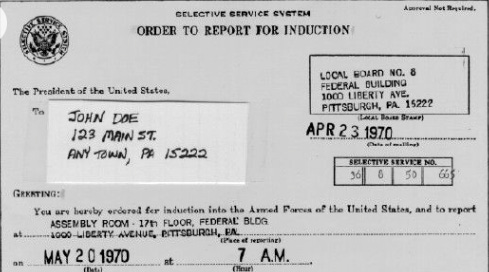



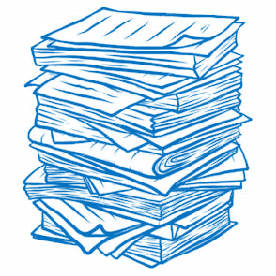
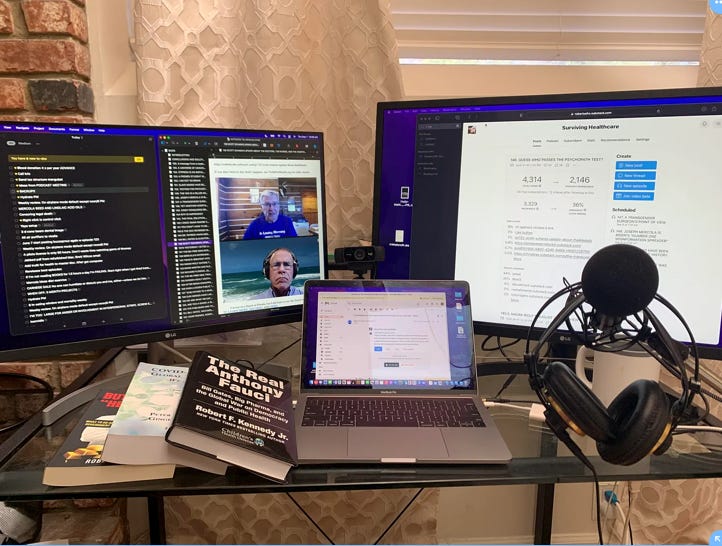

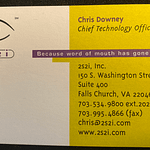



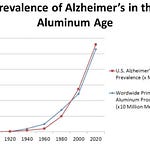



Share this post